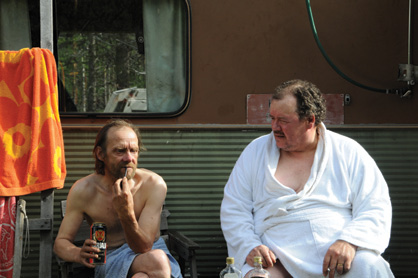
Cinematographers: Heikki Farm, Jani Kumpulainen-Steam of Life
Yearning to travel without leaving home? To witness beauty, justice, injustice, science, happiness, struggle, love, dedication, exploitation, corruption, melody, technology, betrayal, courage – in short, the brightest and darkest of the human condition? Anybody who can reach the Tel Aviv Cinematheque and its satellite locations has a 10 day opportunity to do just that.
DocAviv festival offers dozens of the world’s finest new documentaries from morning until late night. Directors fly in from abroad to engage in dialogue with audiences, and sophisticated big budget films elbow with maiden efforts of students just mastering the medium. Experts debate the issues raised by the films, workshops on filmmaking and web aspects are offered, festivity reigns. Each film is screened several times, with entrance to each by separate ticket - NIS 35 plus additional youth/senior/soldier discount. Offering a global price for admission to the entire festival might encourage even more attendance.
A sampling discussion of the 80 films shown in May 2010 gives a taste of this annual happening. The best combined esthetics and humanity, none better exemplified than winner of the international competition Steam of Life, the Finnish masterpiece of everyday men baring both body and innermost secrets of soul in the heat of the sauna.
Wandering Eyes, the entry which won the Israeli competition, examined achievement despite mental illness. Outstanding Israeli films included Teacher Irena, proving what love and dedication can achieve among needy children; I’m not a Philipina, the heart wrenching struggle of a foreign caregiver and her adopted blind daughter to gain the right to stay in the Israel, and Pnina Feiler A Communist Nurse profinling an 85 year old still fighting on the barricades of social justice.
Political commentary featured Rabbits a la Berlin, a satirical allegory of totalitarianism relating the story of rabbit colonies in no man’s land during the Cold War; Videocracy, the cynical media manipulation of a whole country by Italian President Berlusconi; The Most Dangerous Man in America: Daniel Ellsberg, an individual prompted by conscience daring to commit illegal acts; and Stolen, a stunning expose of human slavery currently flourishing in Africa.
Greed was highlighted in Dreamland, the rape for profit of the Icelandic countryside. Food, Inc. detailed the unbridled pollution and poisoning of international agricultural production and the concomitant debasement of workers, while The End of the Line pled to halt slaughter and extinction of the world’s marine species. The Blood of the Rose exposed how an environmentalist’s unyielding determination to save nature in Kenya while ignoring its impoverished people led to her murder.
Painting was the subject of inquiry in films on an unknown museum in Uzbekistan housing world class art treasures deemed “degenerate” by Stalin (The Desert of Forbidden Art), on unethical exploitation of the Barnes painting collection for Philadelphia’s commercial and political benefit (Art of Steal), and on the genius of Vermeer (Views on Vermeer). Architecture was spotlighted in Learning from Light: the Vision of I.M. Pei, and the musical world was highlighted in You Cannot Start without Me – Valery Gergiev – Maestro about the celebrated conductor and Joan Baez, homage to the folk singer.
Political awareness, the traditional tool of documentaries, was ubiquitous, as in the film on illegal child aliens in Central America Which Way Home, and the Israel/Arab/ Palestinian tragedy in White Tape, in Through my Eyes – Stories by Galilee Youths, and in Blood Relation, runner-up winner of the Israeli competition. Struggle with addiction was highlighted by The Player, on gambling. History had its turn in The Fall of the Shah, and in Farewell, a glimpse into the short-lived era of zeppelin air travel, featuring historical footage of a heady 1929 round the world voyage in a hot air balloon.
The festival included social commitment outside the screen, exhibiting Ziv Koren’s photographs of post-earthquake Haiti and sales of its catalogue by Latet organization to benefit Haiti. Ecological films had additional screenings in Ha-Tachana in conjunction with a weekend of environmental awareness. Aiming to entice younger audiences, free screenings were held in the Tel Aviv port.
It proved impossible to view all or even a majority of this cavalcade of films or to digest their rich diet within the concentrated boundaries of the festival. A convenient solution: the film library at the Cinematheque contains copies of every movie in the festival (plus 30,000 other film classics) and offers private viewings for a nominal fee daily on location.
DocAviv transforms its city into cinema paradiso.
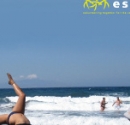 DEAR EDITOR 155
DEAR EDITOR 155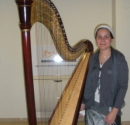 MODIIN ON THE MOVE
MODIIN ON THE MOVE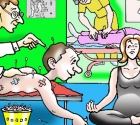 HEALTH HINTS ONIONS FOR JAUNDICE
HEALTH HINTS ONIONS FOR JAUNDICE Art from the Heart
Art from the Heart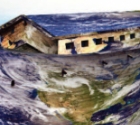 Jewish Art Returns to Jerusalem
Jewish Art Returns to Jerusalem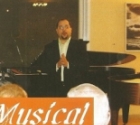 Musical Treats
Musical Treats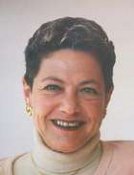 Helen Schary Motro
Helen Schary Motro